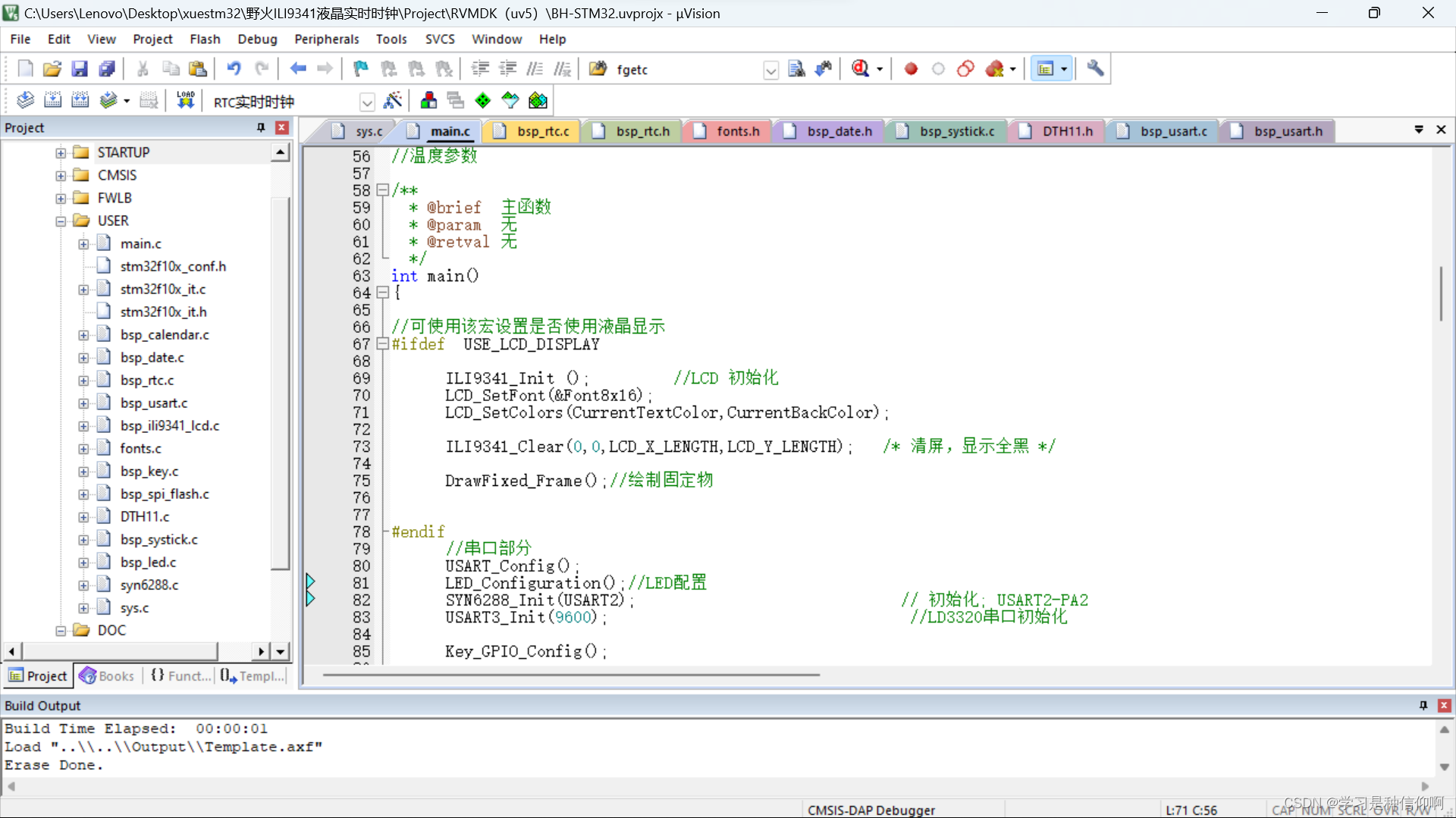Gearman分布式任务处理系统(八)开发讲解
这篇重点介绍C-Lib库及client和worker的开发,以0.14版libgearman for C来讲解Client APIclient初始化&析构gearman_client_st *gearman_client_create(gearman_client_st *client)void gearman_client_free(gearman_client_st
这篇重点介绍C-Lib库及client和worker的开发,以0.14版libgearman for C来讲解
Client API
client初始化&析构
gearman_client_st *gearman_client_create(gearman_client_st *client)
void gearman_client_free(gearman_client_st *client)
gearman_return_t gearman_client_add_server(gearman_client_st *client, const char *host, in_port_t port);
gearman_return_t gearman_client_add_servers(gearman_client_st *client, const char *servers); (一次添加多个gearman job-server)
同步操作
void * gearman_client_do(gearman_client_st *client, const char *function_name, const char *unique, const void *workload, size_t workload_size, size_t *result_size, gearman_return_t *ret_ptr);
其中:
i. unique: 的作用是client添加job给worker的时候的一个唯一标识,可选,默认是NULL
ii. workload & workload_size指代执行任务的详细参数及其大小
iii. result_size [out],指代返回数据的大小
iv. ret_ptr [out], 指代gearman的返回status,以下是官方对于返回status的一些说明:
In the case of GEARMAN_WORK_DATA, GEARMAN_WORK_WARNING, or GEARMAN_WORK_STATUS, the caller should take any actions to handle the event and then call this function again. This may happen multiple times until a GEARMAN_WORK_ERROR, GEARMAN_WORK_FAIL, or GEARMAN_SUCCESS (work complete) is returned. For GEARMAN_WORK_DATA or GEARMAN_WORK_WARNING, the result_size will be set to the intermediate data chunk being returned and an allocated data buffer will be returned. For GEARMAN_WORK_STATUS, the caller can use gearman_client_do_status() to get the current tasks status.
总而言之,只有GEARMAN_WORK_ERROR/GEARMAN_WORK_FAIL/GEARMAN_SUCCESS才是三个最终的返回结果,其他的只是临时中间结果,需要进一步调用接受结果的函数(感觉中间结果只有在异步调用过程中才会出现)
v. 输出是返回数据的起始地址,一旦用户用完之后,必须free,否则会出现内存泄露。
void gearman_set_timeout(gearman_universal_st *gearman, int timeout);
设置gearman_client_do多长时调用无返回则超时时间
异步callback操作
Gearman通过使用gearman_client_add_task()来望gearman_client_st中添加task,通过gearman_client_set_created_fn() / gearman_client_set_complete_fn()等来注册callback function,通过gearman_client_run_tasks()来运行gearman_client_st中的task。
异步background操作
系统在background运行job,client定期获得job运行结果,如果成功则返回,反之则继续等待。
gearman_return_t gearman_client_do_background(gearman_client_st *client, const char *function_name, const char *unique, const void *workload, size_t workload_size, char *job_handle);
i. job_handle [out]: 一个job的标识符
ii. 输出:返回状态
* gearman_return_t gearman_client_job_status(gearman_client_st *client, gearman_job_handle_t job_handle, bool *is_known, bool * is_running, uint32_t *numerator, uint32_t *denominator);
* 用户获得在background执行的job的状态
i. is_known [out]: Optional parameter to store the known status in
ii. is_running [out]: Optional parameter to store the running status in
iii. numerator [out]: Optional parameter to store the numerator in
iv. denominator [out]: Optional parameter to store the denominator in
PS: 好像background操作不怎么好使,不知道如何通过获得background的运行结果,这个是我一直困惑的
gearman_client_st的一些属性
gearman_client_st一共有以下3种运行属性:
i. GEARMAN_CLIENT_NON_BLOCKING: client运行在non-blocking mode
ii. GEARMAN_CLIENT_FREE_TASKS: 在task执行完成之后,自动的释放task
iii. GEARMAN_CLIENT_UNBUFFERED_RESULT: Allow the client to read data in chunks rather than have the library buffer the entire data result and pass that back。
可以通过函数gearman_client_add_options() / gearman_client_remove_options() / gearman_client_has_option() 等进行属性添加/删除/判断等
Worker API
/**
* Initialize a worker structure. Always check the return value even if passing
* in a pre-allocated structure. Some other initialization may have failed. It
* is not required to memset() a structure before providing it.
*
* @param[in] worker Caller allocated structure, or NULL to allocate one.
* @return On success, a pointer to the (possibly allocated) structure. On
* failure this will be NULL.
*/
GEARMAN_API
gearman_worker_st *gearman_worker_create(gearman_worker_st *worker);
/**
* Free resources used by a worker structure.
*
* @param[in] worker Structure previously initialized with
* gearman_worker_create() or gearman_worker_clone().
*/
GEARMAN_API
void gearman_worker_free(gearman_worker_st *worker);
/**
* Add a job server to a worker. This goes into a list of servers that can be
* used to run tasks. No socket I/O happens here, it is just added to a list.
*
* @param[in] worker Structure previously initialized with
* gearman_worker_create() or gearman_worker_clone().
* @param[in] host Hostname or IP address (IPv4 or IPv6) of the server to add.
* @param[in] port Port of the server to add.
* @return Standard gearman return value.
*/
GEARMAN_API
gearman_return_t gearman_worker_add_server(gearman_worker_st *worker,
const char *host, in_port_t port);
/**
* Add a list of job servers to a worker. The format for the server list is:
* SERVER[:PORT][,SERVER[:PORT]]...
* Some examples are:
* 10.0.0.1,10.0.0.2,10.0.0.3
* localhost LIBGEARMAN_BITFIELD234,jobserver2.domain.com:7003,10.0.0.3
*
* @param[in] worker Structure previously initialized with
* gearman_worker_create() or gearman_worker_clone().
* @param[in] servers Server list described above.
* @return Standard gearman return value.
*/
GEARMAN_API
gearman_return_t gearman_worker_add_servers(gearman_worker_st *worker,
const char *servers);
/**
* Register and add callback function for worker. To remove functions that have
* been added, call gearman_worker_unregister() or
* gearman_worker_unregister_all().
*
* @param[in] worker Structure previously initialized with
* gearman_worker_create() or gearman_worker_clone().
* @param[in] function_name Function name to register.
* @param[in] timeout Optional timeout (in seconds) that specifies the maximum
* time a job should. This is enforced on the job server. A value of 0 means
* an infinite time.
* @param[in] function Function to run when there is a job ready.
* @param[in] context Argument to pass into the callback function.
* @return Standard gearman return value.
*/
GEARMAN_API
gearman_return_t gearman_worker_add_function(gearman_worker_st *worker,
const char *function_name,
uint32_t timeout,
gearman_worker_fn *function,
void *context);
/**
* Wait for a job and call the appropriate callback function when it gets one.
*
* @param[in] worker Structure previously initialized with
* gearman_worker_create() or gearman_worker_clone().
* @return Standard gearman return value.
*/
GEARMAN_API
gearman_return_t gearman_worker_work(gearman_worker_st *worker);
/**
* See gearman_universal_set_timeout() for details.
*/
GEARMAN_API
void gearman_worker_set_timeout(gearman_worker_st *worker, int timeout);
开发实例
下面这个实例程序是,jfy_client发送test,jfy_worker返回test->result
/*
gearman client 测试程序
gcc -o jfy_client jfy_client.c -I/usr/local/gearman/include -L/usr/local/gearman/lib -lgearman
./jfy_client "this is a test"
*/
#include <stdio.h>
#include <stdlib.h>
#include <string.h>
#include <unistd.h>
#include <libgearman/gearman.h>
static void usage(char *name);
int main(int argc, char *argv[])
{
int i;
gearman_return_t ret;
gearman_client_st client;
char *result;
size_t result_size;
uint32_t numerator;
uint32_t denominator;
char *host = "localhost", *port = "4730";
if (gearman_client_create(&client) == NULL)
{
fprintf(stderr, "Memory allocation failure on client creation\n");
exit(1);
}
gearman_client_set_options(&client, GEARMAN_CLIENT_FREE_TASKS);
gearman_client_set_timeout(&client, 15000);
ret= gearman_client_add_server(&client, host, atoi(port));
if (ret != GEARMAN_SUCCESS)
{
fprintf(stderr, "%s\n", gearman_client_error(&client));
exit(1);
}
for (i=0;i<10;i++)
{
result= (char *)gearman_client_do(&client, "jfytest", NULL,
(void *)argv[1],
(size_t)strlen(argv[1]),
&result_size, &ret);
if (ret == GEARMAN_WORK_DATA)
{
printf("Data=%.*s\n", (int)result_size, result);
free(result);
}
else if (ret == GEARMAN_WORK_STATUS)
{
gearman_client_do_status(&client, &numerator, &denominator);
printf("Status: %u/%u\n", numerator, denominator);
}
else if (ret == GEARMAN_SUCCESS)
{
char result2[1024];
strncpy(result2, result, result_size);
result2[result_size] = 0;
printf("result_size=%d,result=%s=\n", (int)result_size, result2);
free(result);
}
else if (ret == GEARMAN_WORK_FAIL)
fprintf(stderr, "Work failed\n");
else if (ret == GEARMAN_TIMEOUT)
{
fprintf(stderr, "Work timeout\n");
} else {
fprintf(stderr, "%d,%s\n", gearman_client_errno(&client), gearman_client_error(&client));
}
printf("sleep 5s ...\n");
sleep(5);
}
gearman_client_free(&client);
return 0;
}
/*
gearman worker 测试程序
gcc -o jfy_worker jfy_worker2.c -I/usr/local/gearman/include -L/usr/local/gearman/lib -lgearman
./jfy_worker ./jfy_worker.tr
*/
#include <errno.h>
#include <stdio.h>
#include <stdlib.h>
#include <string.h>
#include <unistd.h>
#include <libgearman/gearman.h>
static void *jfytest(gearman_job_st *job, void *context, size_t *result_size,
gearman_return_t *ret_ptr);
int main(int argc, char *argv[])
{
gearman_return_t ret;
gearman_worker_st worker;
char *host = "localhost", *port = "4730";
if (gearman_worker_create(&worker) == NULL)
{
printf("%s\n", gearman_worker_error(&worker));
exit(1);
}
ret= gearman_worker_add_server(&worker, host, atoi(port));
if (ret != GEARMAN_SUCCESS)
{
printf("%s\n", gearman_worker_error(&worker));
exit(1);
}
ret= gearman_worker_add_function(&worker, "jfytest", 0, jfytest, NULL);
if (ret != GEARMAN_SUCCESS)
{
printf("%s\n", gearman_worker_error(&worker));
exit(1);
}
printf("wait job ...\n");
while (1)
{
ret= gearman_worker_work(&worker);
if (ret != GEARMAN_SUCCESS)
{
printf("%s\n", gearman_worker_error(&worker));
break;
}
}
gearman_worker_free(&worker);
return 0;
}
static void *jfytest(gearman_job_st *job, void *context, size_t *result_size,
gearman_return_t *ret_ptr)
{
const uint8_t *workload;
char *request,*result;
workload= gearman_job_workload(job);
*result_size= gearman_job_workload_size(job);
request= malloc(1024);
if (result == NULL)
{
printf("malloc request:%d\n", errno);
*ret_ptr= GEARMAN_WORK_FAIL;
return NULL;
}
snprintf((char *)request, *result_size+1, "%s", (char *)workload);
printf("job=%s,result_size=%d,request=%s\n", gearman_job_handle(job),*result_size,request);
result= malloc(1024);
if (result == NULL)
{
printf("malloc result:%d\n", errno);
*ret_ptr= GEARMAN_WORK_FAIL;
return NULL;
}
*ret_ptr= GEARMAN_SUCCESS;
sprintf((char *)result, "%s->result", (char *)request);
*result_size= strlen((char *)result);
printf("job=%s,result_size=%d,result=%s\n", gearman_job_handle(job),*result_size,result);
return result;
}
下面的实例是PHP程序(PHP Gearman参考文档),客户端发送"hello!"
worker端是两个程序,一个是阻塞方式的,一个是非阻塞方式的
<?php
/*
* send "Hello!"
*/
echo "Starting\n";
# Create our client object.
$gmclient= new GearmanClient();
# Add default server (localhost).
$gmclient->addServer();
echo "Sending job\n";
# Send reverse job
do
{
$result= $gmclient->do("reverse", "Hello!");
# Check for various return packets and errors.
switch($gmclient->returnCode())
{
case GEARMAN_WORK_DATA:
echo "Data: $result\n";
break;
case GEARMAN_WORK_STATUS:
list($numerator, $denominator)= $gmclient->doStatus();
echo "Status: $numerator/$denominator complete\n";
break;
case GEARMAN_SUCCESS:
break;
default:
echo "RET: " . $gmclient->returnCode() . "\n";
exit;
}
}
while($gmclient->returnCode() != GEARMAN_SUCCESS);
echo "Success: $result\n";
?>
<?php
/*
* 阻塞方式Worker,处理"Hello!"转换为"!olleH"
*/
echo "Starting\n";
# Create our worker object.
$gmworker= new GearmanWorker();
$gmworker->setTimeout(5000);
# Add default server (localhost).
$gmworker->addServer();
# Register function "reverse" with the server. Change the worker function to
# "reverse_fn_fast" for a faster worker with no output.
$gmworker->addFunction("reverse", "reverse_fn");
print "Waiting for job...\n";
while($gmworker->work())
{
if ($gmworker->returnCode() != GEARMAN_SUCCESS)
{
echo "return_code: " . $gmworker->returnCode() . "\n";
break;
}
echo "receve and proced a job!";
}
function reverse_fn($job)
{
echo "Received job: " . $job->handle() . "\n";
$workload= $job->workload();
$workload_size= $job->workloadSize();
echo "Workload: $workload ($workload_size)\n";
# This status loop is not needed, just showing how it works
for ($x= 0; $x < $workload_size; $x++)
{
echo "Sending status: $x/$workload_size complete\n";
/*
$job->sendStatus($x, $workload_size);
sleep(1);
*/
}
$result= strrev($workload);
echo "Result: $result\n";
# Return what we want to send back to the client.
return $result;
}
# A much simpler and less verbose version of the above function would be:
function reverse_fn_fast($job)
{
return strrev($job->workload());
}
?>
<?php
/*
* 非阻塞方式Worker,处理"Hello!"转换为"!olleH"
*/
echo "Starting\n";
# Create our worker object.
$gmworker= new GearmanWorker();
$gmworker->setTimeout(1000);
$gmworker->addOptions(GEARMAN_WORKER_NON_BLOCKING); # Make the worker non-blocking
# Add default server (localhost).
$gmworker->addServer();
# Register function "reverse" with the server. Change the worker function to
# "reverse_fn_fast" for a faster worker with no output.
$gmworker->addFunction("reverse", "reverse_fn");
print "Waiting for job...\n";
while ( ($ret = $gmworker->work()) || $gmworker->returnCode() == GEARMAN_IO_WAIT || $gmworker->returnCode() == GEARMAN_NO_JOBS) {
echo "return_code: " . $gmworker->returnCode() . "\n";
if ($gmworker->returnCode() == GEARMAN_SUCCESS) {
continue;
}
if ( !$gmworker->wait() ) {
echo "return_code: " . $gmworker->returnCode() . "\n";
if ($gmworker->returnCode() == GEARMAN_NO_ACTIVE_FDS) {
# We are not connected to any servers, so wait a bit before
# trying to reconnect. sleep(5);
continue;
}
break;
}
}
function reverse_fn($job)
{
echo "Received job: " . $job->handle() . "\n";
$workload= $job->workload();
$workload_size= $job->workloadSize();
echo "Workload: $workload ($workload_size)\n";
# This status loop is not needed, just showing how it works
for ($x= 0; $x < $workload_size; $x++)
{
echo "Sending status: $x/$workload_size complete\n";
/*
$job->sendStatus($x, $workload_size);
sleep(1);
*/
}
$result= strrev($workload);
echo "Result: $result\n";
# Return what we want to send back to the client.
return $result;
}
# A much simpler and less verbose version of the above function would be:
function reverse_fn_fast($job)
{
return strrev($job->workload());
}
?>
更多推荐
 已为社区贡献1条内容
已为社区贡献1条内容








所有评论(0)